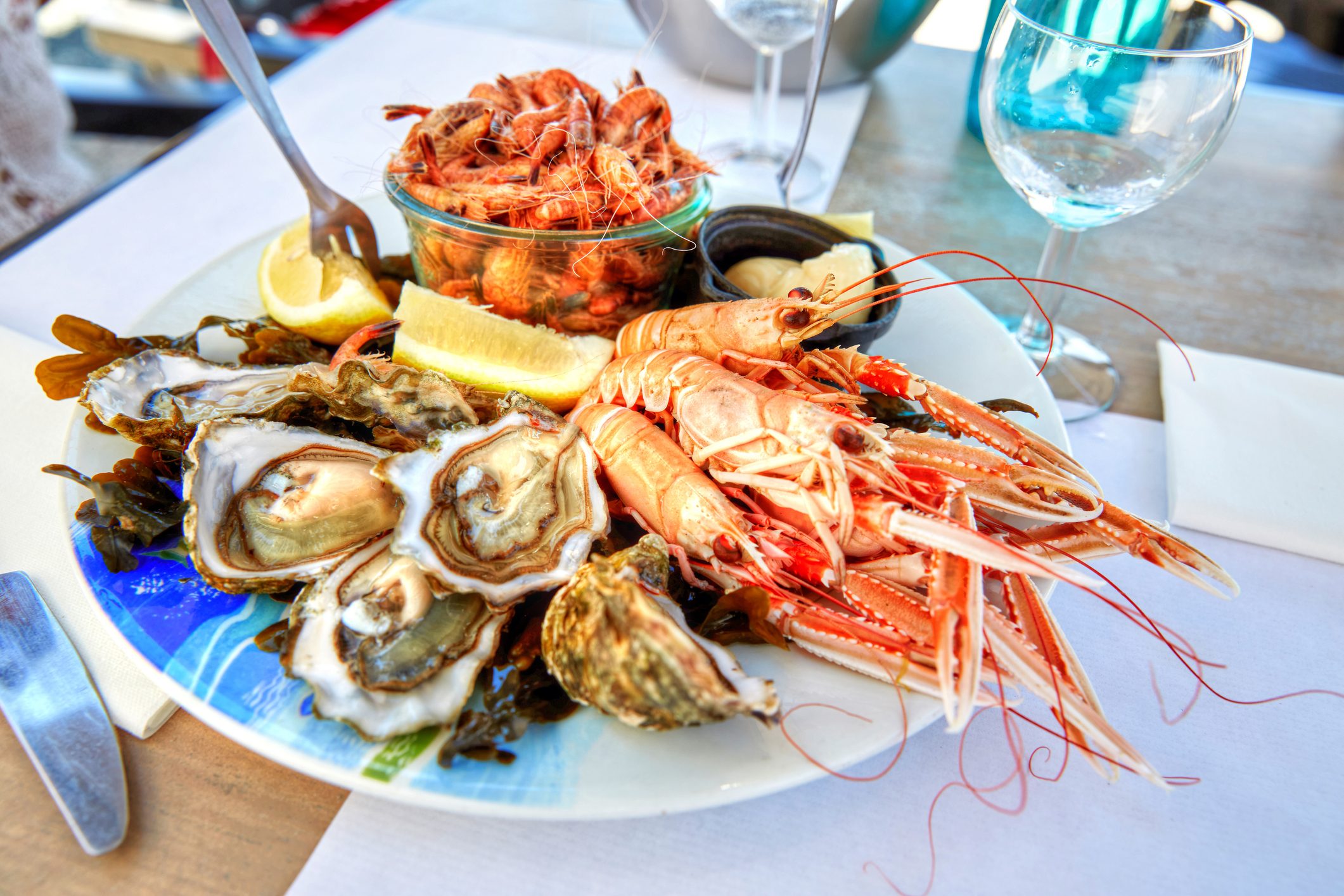What is Shellfish? Everything You Need to Know
They’re full of lean protein, healthy fats, and minerals, and eating shellfish regularly could boost your immunity, help with weight loss, and be beneficial for brain and heart health.
;)
Shellfish are a favorite food all over the world, and have been for centuries.
They’re full of lean protein, healthy fats, and minerals, and eating shellfish regularly could boost your immunity, help with weight loss, and be beneficial for brain and heart health.
They are also one of the most common food allergens, and some types could be contaminated with heavy metals. Read on to find out all about the benefits and possible dangers of eating shellfish.

What Are Shellfish?
Shellfish can be divided into two groups – crustaceans and mollusks. Crustaceans include shrimp, crayfish, crab and lobster. Clams, scallops, oysters and mussels are mollusks.
Most are saltwater species, but some live in fresh water.
Most shellfish are eaten steamed, baked or fried, but oysters and clams can be eaten raw or partially cooked.
A Nutritious Food

Shellfish are low in calories, and good sources of lean protein, healthy fats and other micronutrients.
Most of the fat in shellfish is of the omega-3 fatty acids variety, which can improve heart and brain health.
Shellfish are also rich in iron, zinc, magnesium and vitamin B12, which are essential for your body.
Shellfish are at their most nutritious when steamed or baked, as breaded or fried shellfish can add extra carbs, calories, salt and other unhealthy ingredients.
Possible Health Benefits of Shellfish
Could aid weight loss
As shellfish are low in calories and high in protein, they make an excellent choice for those trying to lose weight.
The protein can help keep you feeling full, and the omega-3 fatty acid content may also make you feel satisfied and less likely to snack or overeat at the next meal.

May benefit heart health
Shellfish are full of heart-healthy nutrients, such as omega-3 fatty acids, and vitamin B12.
Several studies have shown that eating omega-3 fatty acids from fish and shellfish could lead to a lower risk of heart disease – probably because the omega-3 acids have anti-inflammatory effects.
If you don’t have enough vitamin B12 in your body, it could lead to high blood levels of homocysteine, a protein that can increase the risk of heart disease.

Could be good for the brain
There’s an old saying that “fish is good for the brain”, and that is also true of shellfish.
Inadequate blood levels of vitamin B12 and omega-3 fatty acids could be risk factors for issues with brain development in children, and healthy adult brain function.
A study of older adults with mild mental impairments found that B vitamins slowed the progression of brain problems in those who had higher blood levels of omega-3 fatty acids, compared with those who had lower blood levels.

Immune system booster
Zinc is great for boosting your immune system, and some types of shellfish are full of it.
Eating oysters, clams, mussels, lobster and crab regularly could improve your zinc levels and overall immune function.
Possible Dangers of Shellfish
Heavy metal contamination
Shellfish can accumulate heavy metals from their environments such as mercury or cadmium. Humans can’t rid the body of heavy metals, so over time they build up and can lead to organ damage and other health issues.
Shellfish is some areas were found to contain cadmium levels that are twice the safe daily limit for human consumption. Shellfish are also at risk from mercury contamination, but less so than larger fish.

Foodborne illnesses
Contaminated shellfish can cause food poisoning from bacteria, viruses or parasites that they acquire from their environments. These pathogens thrive in raw shellfish, and shellfish that is incorrectly stored.
Pregnant and nursing mothers, older adults and people with compromised immune systems should take extra care to avoid raw or improperly prepared shellfish.

Allergic reactions
In the US, shellfish rank as one of the top eight food allergens. Shellfish allergy generally develops in adulthood, but can happen in childhood too.
Symptoms of a shellfish allergy include vomiting and diarrhea, stomach pain and cramps, throat, tongue or lips swelling, hives, and shortness of breath.
Rarely, those with a shellfish allergy could experience a dangerous anaphylactic shock, which can be life-threatening and needs immediate medical attention.
;Resize,width=767;)
;Resize,width=712;)
;Resize,width=712;)

